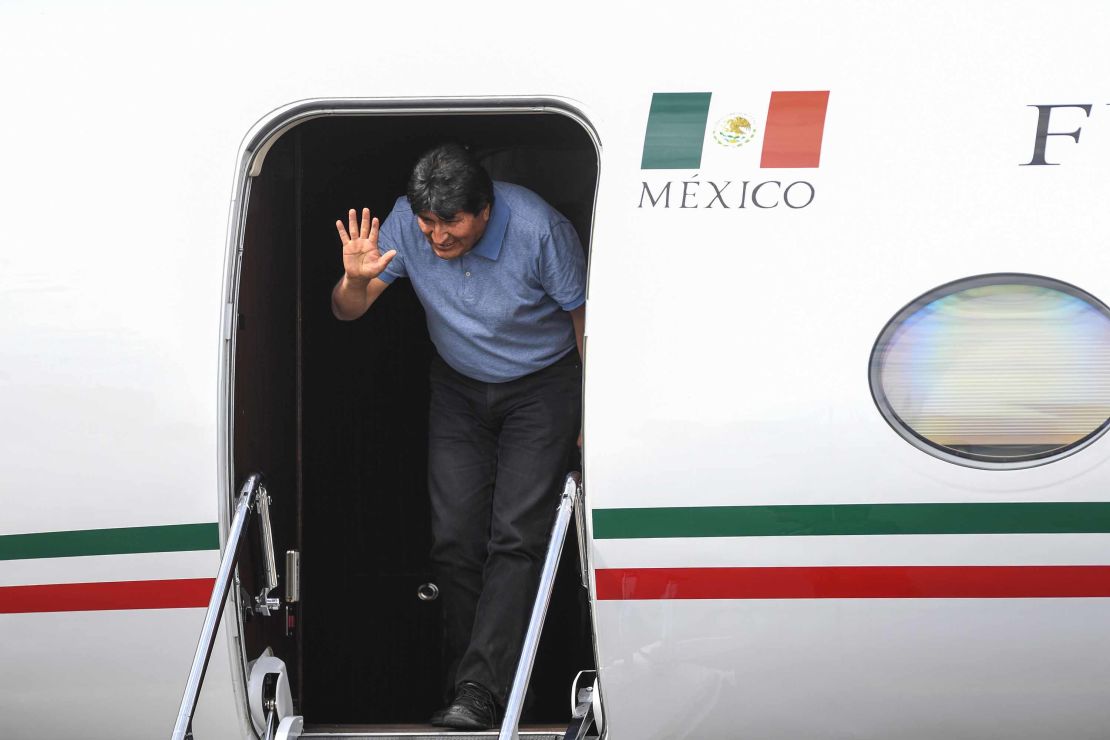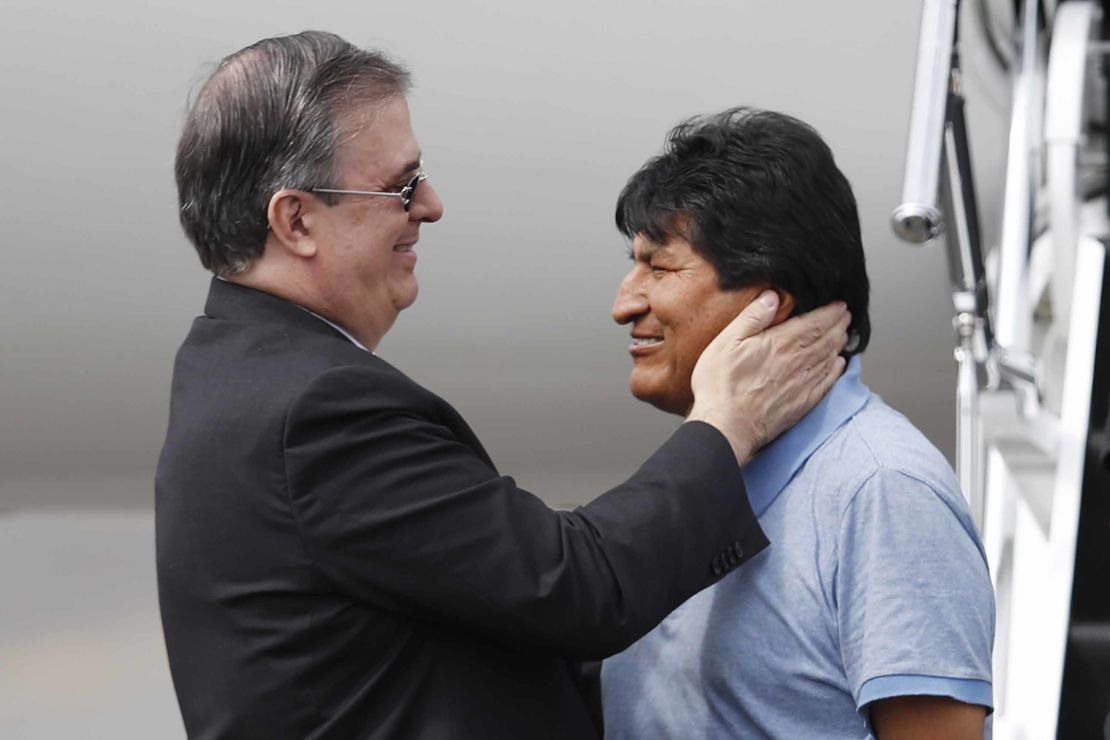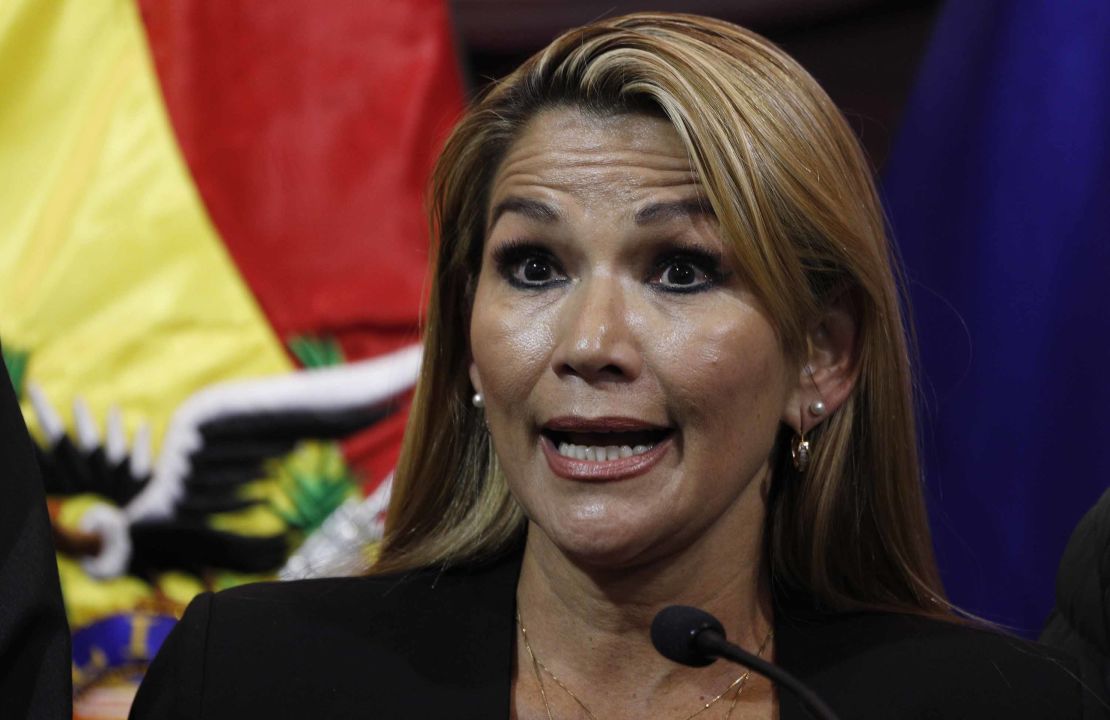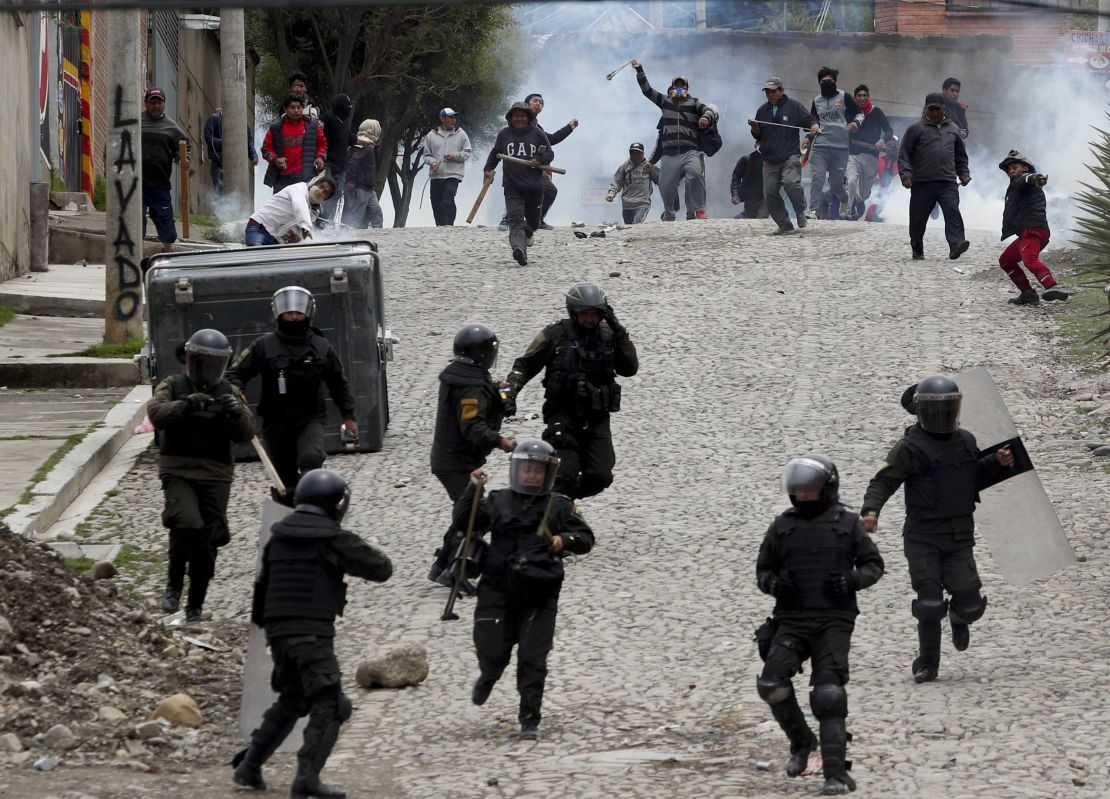Bolivia’s former President, Evo Morales, landed in Mexico on Tuesday. He has been given political asylum there in the wake of what he describes as a “coup” by the country’s military and opposition, following days of popular protest.
Morales thanked Mexico’s President, Andres Manuel Lopez Obrador, for saving his life, and reiterated that he had been forced to resign.
“We are here safe thanks to Mexico and its authorities, but I also want to tell you sisters and brothers, as long as I’m alive, we’ll continue in politics,” Morales said. “As long as I’m alive, the fight continues and we are sure that the peoples of the world can liberate themselves.”

Morales’ arrival in Mexico came a day after his resignation, a move that followed military intervention amid mass protests and allegations of “serious irregularities” during last month’s election.
It was a complicated journey, according to Mexican Foreign Secretary Marcelo Ebrard, who detailed the complications of bringing Morales to Mexico in a televised news conference Tuesday morning.
The Mexican Air Force plane sent to pick up Morales was initially denied access to Bolivian airspace, takeoff was delayed and protesters surrounded the airport in what Ebrard described as a “tense situation.”

After Morales boarded the plane, it was denied permission to refuel in Peru, and had to stop in Paraguay before arriving in Mexico City.
“It’s like a trip through Latin-American politics and how decisions are made. And the risks that are taken,” Ebrard said of the journey.
Deepening political crisis
Violent protests in Bolivia have left three dead and hundreds injured since the contested October 20 election.
The Bolivian opposition had accused electoral authorities of manipulating the vote in favor of the incumbent Morales, who denied the allegations and declared himself the winner.
The Organization of American States (OAS) – a Washington-based forum – published a report Sunday alleging irregularities that impacted the official vote count. But analysis by the Center for Economic and Policy Research, another US-based think tank, has cast doubt on those findings, warning against what it called “the politicization of the electoral observation process.”
Calls for Morales’ removal grew over the weekend, culminating in police joining forces with anti-government protesters.
Morales claimed he’d been forced out in a coup – a charge echoed by many of his allies in South America.
But Brazil’s Foreign Ministry said Tuesday it rejected the “thesis that a ‘coup’ is taking place in Bolivia,” suggesting instead that Morales was “delegitimized” by popular protests following an “attempt at electoral fraud.”
Opposition figures said they were engaged in a struggle for “democracy and peace,” though serious concerns remain about what role the military will play in the ongoing transition.
Tuesday, Jeanine Anez, the second vice president of Bolivia’s Senate, told the country’s National Assembly that she would be Bolivia’s interim president, despite failing to garner enough votes to become the president of the Senate – a role that would have put her automatically next in line for the presidency.

Security forces try to quell violence
Monday, the head of the Bolivian Armed Forces, Gen. Williams Kaliman, announced in a televised address that the military will carry out “joint operations” with police in order to “avoid blood and grief.”
Kaliman said the armed forces will use force “proportionally” against “vandal groups that cause terror in the population.” He added the military will “never open fire” on the Bolivian population.
Gen. Vladimir Calderón, the head of Bolivia’s national police, said at the same news conference the joint operation “will end when peace is established throughout the Bolivian people.”

He said police units had “been burned and looted.”
Mesa, who was Morales’ closest rival in the disputed election, expressed hope of forming a new government following the announcement of joint military-police operations.
He called on Bolivians to “not harass” security forces because “without them there is no new government,” in a Monday interview with CNN en Español.
CNN’s Helen Regan, Kay Guerrero, Dakin Andone, Jack Guy, Taylor Barnes, Blanca Carretero, Gustavo Valdes and Bethlehem Feleke contributed to this report.

